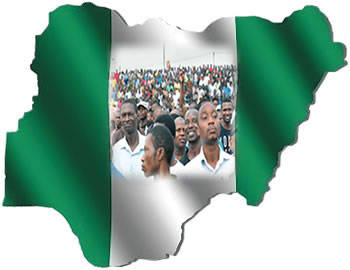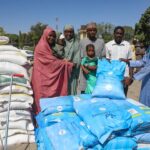About 2,000 youths across 10 Nigerian states including the Federal Capital Territory (FCT), Abuja have petitioned their governors, parliamentarians, policymakers and other influential persons to act on government’s commitments to increase access to safe, quality education for all children, especially girls.
The mass action, backed by UNICEF, becomes necessary as the world celebrates this year’s International Day of the African Child, marked every June 16.
It will be recalled that the world began commemorating the day in 1976 when 100s of students were shot in Soweto, South Africa, while demonstrating for their right to quality education.
The Nigerian campaign for access to quality education is expected to hold the newly-elected government officials at all levels accountable for their campaign promises to provide equitable access to free, safe and quality education for every child, especially the girl-child, in Nigeria, a statement from UNICEF noted on Sunday.
The 10 states involved in the mass action include Bauchi, Niger, Katsina, Kano, Sokoto, Zamfara, Kebbi, Gombe, Adamawa, Taraba and the FCT, which have a total of about 8,000,000 out-of-school children and an average enrolment rate of only 57 percent.
The global theme for this year’s Day of the African Child, according to the statement, is: “Child Rights in all situations, including during humanitarian crises.”
It noted that in Nigeria today, over 10.5 million children are unable to access safe and quality education due to the ongoing crisis in the north-east, which has left schools destroyed, teachers unavailable, and parents terrified to send their children to school as a result of insecurity especially for the girl-child, who have been the victim of kidnapping while at school.
The statement quoted UNICEF Representative in Nigeria, Peter Hawkins, saying schools should be a safe place for children – one in which they can get a quality education that will put them on the path to a secure future.
“Sadly, the demand for quality education by children in Soweto, South Africa in 1976, is still valid today, in too many countries around the world. The youth actions we are seeing today across several states are a wakeup call for leaders to act on their commitments to provide quality education for all children, in all situations,” he said.
He added that the engagement seeks to secure commitments from national and state governments to prioritize children’s rights to education in their governance agenda, including through budgeting, in their states and at the national level.
“This engagement creates an opportunity for Nigerian youth to advocate to policy and decision makers and urge them to commit resources to education, without which the substantial number of out-of-school children in Nigeria will not be reduced,” Hawkins added.
It stated that the action is calling for improved school infrastructure, a massive enrolment campaign to bring all children to school, and targeted investments to ensure an uninterrupted 12 years of schooling for girls.
“In addition, it hopes to extract a commitment for a 10% increase in budgetary allocation and release of funds for education, with 50 percent of the total budget to basic education, recruitment, deployment and provision of incentives for 1,000 female teachers per year and recruitment and deployment of 1,000 qualified teachers per year, especially to rural areas, where they are most needed.
“The action comes as the world celebrates the 30th anniversary of the Convention on the Rights of the Child (CRC). The Convention is the most widely-ratified human rights treaty in history, and stipulates that every child has the right to education. It has helped to transform children’s lives; inspiring legislative changes to protect children and enabling them to participate actively in their societies. Nigeria ratified the CRC in 1991,” it stated.
As part of the commemoration, UNICEF has released a “Passport to Your Rights”, a copy of the CRC in child-friendly language, in pocket format.
UNICEF aims that every child in Nigeria has a copy by 2030 the deadline for achievement of the Sustainable Development Goals.
The CRC ‘passport’ is also available in Hausa, Igbo, Yoruba and Pidgin languages, helping to ensure access by millions of Nigerians, it noted.

 Join Daily Trust WhatsApp Community For Quick Access To News and Happenings Around You.
Join Daily Trust WhatsApp Community For Quick Access To News and Happenings Around You.


